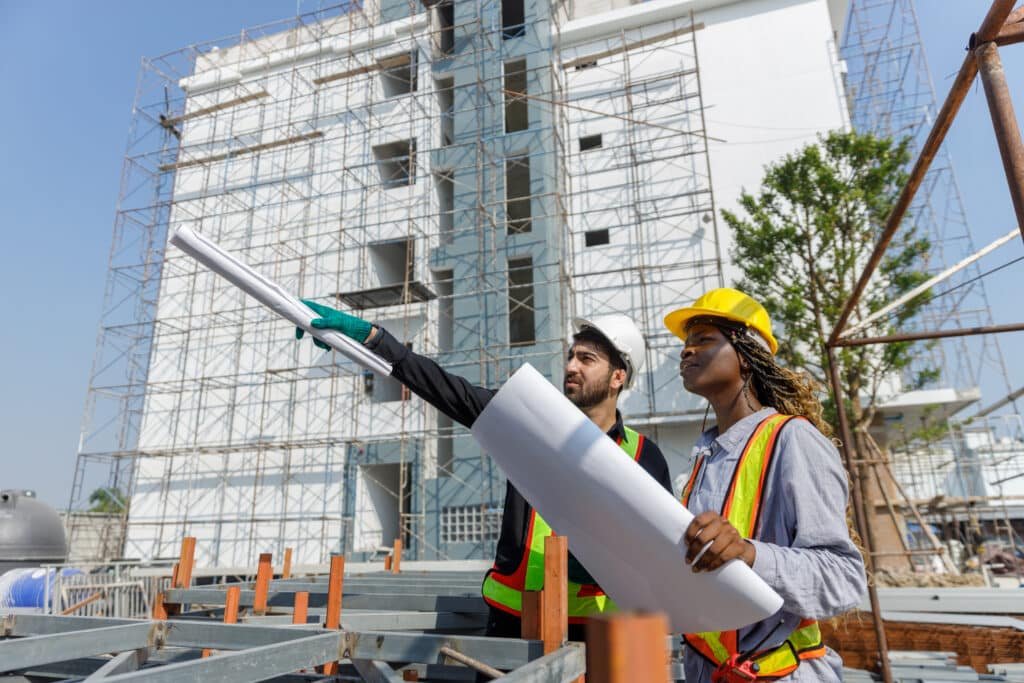Table of Contents
Why You Must Understand Building Restrictions in Phuket
Before you lay the first brick or sign any property documents, it’s essential to know the building restrictions in Phuket. Why? Because making the wrong move could result in fines, denied permits—or worse, forced demolition.
The beautiful coastline, lush jungles, and cultural landmarks of Phuket come with protection laws that regulate what, where, and how you can build. From coastal building rules in Phuket to forest land ownership limitations, your project’s success hinges on legal compliance.
Phuket’s stunning scenery, tropical lifestyle, and vibrant real estate market have made it a top destination for international property buyers. However, one major hurdle investors and developers must face is understanding and complying with building restrictions in Phuket. These include zoning laws, environmental protections, construction codes, and heritage site regulations that can drastically impact your project.
In this guide, we break down the key facts and practical tips to help you navigate Phuket zoning regulations and avoid costly mistakes.

Why You Must Understand Building Restrictions in Phuket
Before you lay the first brick or sign any property documents, it’s essential to know the building restrictions in Phuket. Why? Because making the wrong move could result in fines, denied permits—or worse, forced demolition.
The beautiful coastline, lush jungles, and cultural landmarks of Phuket come with protection laws that regulate what, where, and how you can build. From coastal building rules in Phuket to forest land ownership limitations, your project’s success hinges on legal compliance.
What Are Building Restrictions in Phuket?
Building restrictions in Phuket refer to the legal rules that govern construction and property development across different areas of the island. These restrictions are enforced by Thai government agencies to protect Phuket’s environment, infrastructure, and cultural heritage.
Let’s break down the most important ones:
1. Zoning Laws in Phuket
Phuket’s land is divided into zones for residential, commercial, industrial, agricultural, and conservation purposes. Each zone has different rules. For example, in green zones (forest and conservation areas), construction is highly restricted or forbidden.
Use this zoning map as your first step when evaluating land.
2. Height Restrictions in Phuket
Your distance from the shoreline affects how tall your building can be:
- 0–50 metres from the high-tide line: Max 6 metres
- 50–200 metres inland: Max 12 metres
- 200–400 metres inland: Max 23 metres
Breaking these limits could result in denied permits or even demolition orders.
3. Environmental Regulations in Phuket
If your property is near mangroves, beaches, or hillside areas, you may face additional environmental restrictions in Phuket. These can require Environmental Impact Assessments (EIAs), special permits, or total development bans.
4. Coastal and Forest Land Use Laws in Phuket
Thailand has strict coastal building rules in Phuket to protect beaches and sea views. Meanwhile, some seemingly private forested land may be owned by the government. Never assume land is legally available without verifying title deeds.
5. Construction Codes and Safety Standards
All properties must comply with Phuket construction guidelines, including:
- Safety during storms and earthquakes
- Proper drainage
- Access to roads, water, and electricity
A licensed architect or engineer must certify that your plans meet these codes.
Hidden Risks: Dirty Land and Illegal Developments
Not all properties in Phuket are legally cleared for development. Some villas and hotels have been built on what’s called “dirty land”—plots without valid title deeds or in restricted zones. Buying such land can lead to:
- Rejection of future building permits
- Legal penalties
- Confiscation or demolition
Always conduct full due diligence with the help of a lawyer and surveyor.
Key Government Departments That Enforce Building Restrictions
- Department of Public Works and Town & Country Planning
- Office of Natural Resources and Environmental Policy and Planning
- Ministry of Natural Resources and Environment
- Local Municipalities and OrBorTor (sub-district offices)
They oversee Phuket zoning regulations and may change rules over time. Stay updated.
How to Ensure Compliance with Building Restrictions
Follow these steps before committing to any purchase or project:
- Hire a Phuket-based real estate lawyer familiar with construction laws in Phuket
- Request the zoning classification and verify permitted uses
- Check building height limits for the specific location
- Inspect the title deed (Chanote is best)
- Conduct an environmental risk assessment if near sensitive zones
- Verify infrastructure access like road, sewage, and power
How Ourvillas Can Help
At Ourvillas, we help investors, developers, and expats navigate the complex world of building restrictions in Phuket. Our local experts provide:
- Site evaluations and legal checks
- Access to pre-approved development land
- Architect and contractor referrals
- Full project management support
Avoid costly errors and safeguard your investment with the right guidance.
Conclusion: Build Smart, Build Legally
Phuket offers unmatched opportunities for real estate and development, but it comes with a framework of zoning laws and building restrictions. Respecting these laws ensures your project is legal, sustainable, and profitable.
Before you build in paradise, build your knowledge. Let Ourvillas be your trusted partner in navigating building restrictions in Phuket.
Join our Facebook community for more real estate insights!
